In focus
Big choice, big misfortune? About the tyranny of possibilities
The Swiss sociologist Peter Gross proclaimed the “multi-option society” 30 years ago. His future scenario of a society overwhelmed by countless options became a bestseller. Where are we today? We asked experts in Bern.
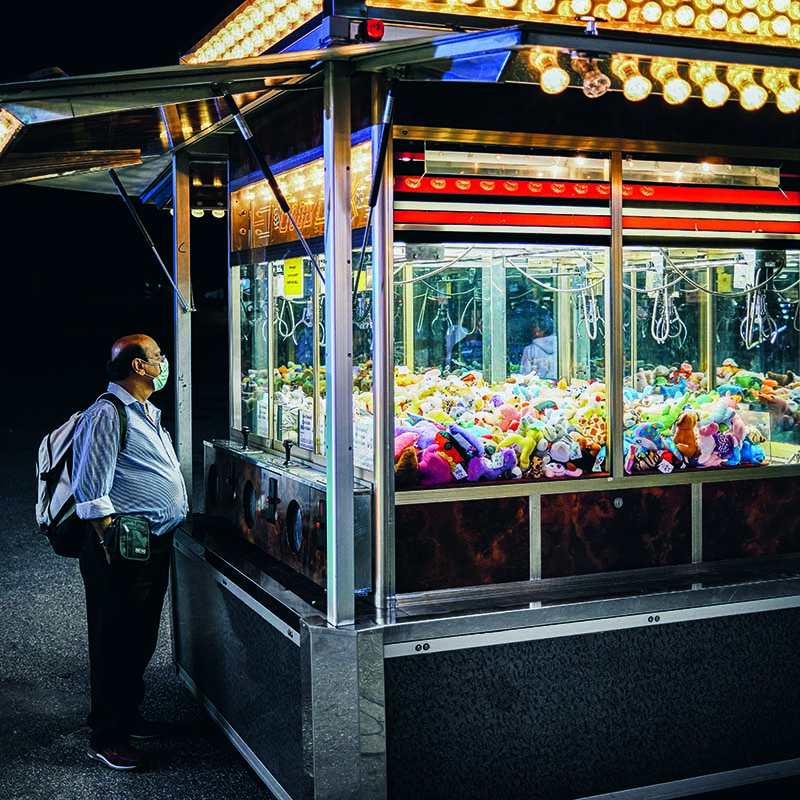
I’m massively behind on the text. It wasn’t the research; that was inspiring and multifaceted. As is so often the case, it was all about writing down, distilling and clarifying. The accumulated potential of elements, quotations and thoughts must be transformed into a compelling text, which also means: One option has to be chosen from many, the loose mesh narrows to form a ribbon along which the story runs. “Kill your darlings,” as I learned in my first internship in journalism. Or alternatively: “Kill your options.” It is a feeling that every journalist knows only too well: There could have always been a far better version of any text. One that would also have been created in the collected material. But there had to be decisions and omissions to find the right path through the notes – even though there is no such thing.
A good 30 years ago, Swiss sociologist Peter Gross gave this malaise a catchy name: We live in a “multi-option society”, as he called his book, which immediately became a bestseller. “However,” as his colleague Christian Joppke from the University of Bern points out, “human action is always based on the fact that there are several options.” In this respect, the term is also a little misleading, as it is basically just “another word for freedom of action”.
There’s always something better
Freedom to act, freedom to decide: It is perhaps the great dilemma of our time. After all, as we all know, you don’t just choose the best option, but also go against a whole host of other options at the same time. The more choices you have, the more potentially good options you have to throw overboard when committing yourself. Hannah Arendt called it the “tyranny of possibilities”. The only way to deal with this without stress is to be sure that you will find the absolutely best option. But how? The more options, the more stressful life is?
“The greatest chance of finding the best product for me is when there is a large selection.”
Claude Messner
Claude Messner, Director of the Department Consumer Behavior at the University of Bern, is not in agreement, at least not from a marketing point of view: Choice is not bad in itself. “The greatest chance of finding the best product for me is when there is a large selection.” In principle, at least. Because he immediately continues with a big but: our limited capacities for processing information are a stumbling block. “Most consumer decisions involve so much information that we are no longer able to process it effectively.” The result is we are overwhelmed, the consumer cannot make a good decision and ultimately gets themselves out of the situation by saying “I’d rather not buy anything”. That of course is not what the marketing people want, so they study the phenomenon intensively. For example, experiments showed that the same praline tastes better from a small selection than if you had to pick it from an unmanageably large one. Another famous example is the paradoxical effect of an efficiency measure: When the Head&Shoulders shampoo range was streamlined, the marketing department was actually expecting sales to decline. But the opposite happened, says Messner: Consumers found their way around the products more easily and sales figures even increased. At the same time, it is undisputed that they like a large selection: In other words, stores benefit when they present an abundance; and that means, there is little incentive to streamline the offer.
About the person
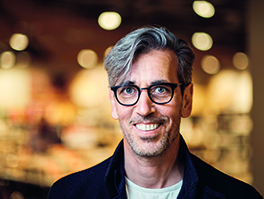
Claude Messner
is Professor of Consumer Behavior at the Bern Institute for Marketing and Management (IMU).
Coffee decision
His best decision in life was to start a family with his wife. Avoiding coffee after 4 p.m. is a rule he finds hard to follow every day. He bitterly regrets that on 7 December 2011 he opted to work and was not in the stadium when Basel knocked Manchester United out of the Champions League.
Contact
Prof. Dr. Claude Messner, claude.messner@unibe.ch
The phenomenon is a kind of selection paradoxor what is known as “overchoice” or “choice overload”. When speaking of his multi-option society, Gross did not necessarily have overwhelmed consumers in mind, he actually meant something more fundamental: “Increasing people’s opportunities for experiencing, acting and living – the increase in options – is the most obvious process of modernization.” So he didn’t mean being overwhelmed by overcrowded shelves, he meant a great restlessness because you’re not committed to anything: Behind every good decision, there may still be a better option. Humans become never-satisfied optimizers in their own interests. As we all know, Mick Jagger was already familiar with this feeling 30 years earlier: “I can’t get no, oh, no, no, no, hey, hey, hey. That’s what I say.”
Mick Jagger knew the feeling: “I can’t get no, oh, no, no, no, hey, hey, hey. That’s what I say.”
Of course, this is also a bit reminiscent of (post-)modern mating behavior, polyamory, “The End of Marriage” (a current bestseller title) and the like. Is it actually possible to make a commitment to one partner, if there is still a more attractive, more successful, more exciting person, within reach on a dating portal? This phenomenon is known as “partner choice overload” and can be put in a nutshell: The more choice of partners there is, the less happiness we find.
Mental illnesses make decisions more difficult
Another thing that makes us unhappy is the feeling of missing out or in short Internet jargon: FOMO. The abbreviation stands for a basic feeling of the now – am I in the right place? Doesn’t what my friends are posting on Instagram, look much nicer, more exciting? So a question for the psychiatry specialist: Is there already such a thing as FOMO syndrome, can this feeling become pathological? “At the moment, we can’t say that a multitude of options would make people mentally ill,” says Sebastian Walther, Deputy Director of the University Clinic of Psychiatry and Psychotherapy in Bern. However, he sees the problem as “that all activities are subject to permanent grading and thus appear less worthwhile and can be less enjoyed.”
It is psychiatrically complex when people with pre-existing conditions are affected. “If, for example, you are already struggling to make decisions due to depression, a personality disorder or an obsessive-compulsive disorder, the constant supply of options is very difficult to manage.” In the clinic, they would recommend that some sufferers stay away from social media or mobile phones in order to function properly.
About the person
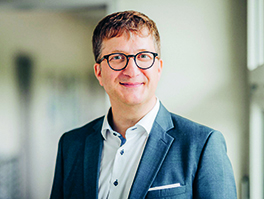
Sebastian Walther
is Chief Physician of the University Clinic of Psychiatry and Psychotherapy and Professor of Neuroscience in Bern.
E-mail decision
He cites starting a family as his best decision. This is probably why he finds it is so hard every day to decide whether to quickly reply to an e-mail or get off home straight away. But he does not remember any “active decision” that he regrets.
Contact
Prof. Dr. Sebastian Walther, sebastian.walther@unibe.ch
Of course: The grass is always greener on the other side. Incidentally, Gross’ colleague, Zygmunt Bauman from Poland, had a nice picture ready for this: For him, the vagabond is the typical figure of modernity – wherever we are, we are already thinking of the next place. He, too, described modernity as an “obsessive march forward” that ultimately makes no sense because “no place is privileged, no place is better than another, since no place is closer to the horizon than any other.” Gross himself diagnosed in his book a “will to increase, to move forward, to more, which is deeply engraved in modern societies and implanted in the heart of modern man. Modernity is founded on the urge for more.” Sociologist Christian Joppke adds that this march forward has become meaningless, something which Marx had already analyzed in exactly the same way. After all, it is the inherently meaningless principle of capitalist commodity production that the machine runs and runs and “the only thing that comes out is: more”.
Incidentally, Claude Messner felt challenged to save the honor of marketing at this point: “People think it’s just to get money out of people’s pockets.” He sees things differently: People also use consumer products as a means of communication to signal their interests and even to constitute their personality – things as your “extended self”. This is one of the reasons why a wide variety of products is good. “Which is the best pasta, which treat has the best sweetness? There is no such question in marketing. We assume that people differ in their needs. And that’s something great: Where there is a variety of lifestyles, there is also a need for a wide variety of products.”
The online magazine of the University of Bern

Subscribe to the uniAKTUELL newsletter
The University of Bern conducts cutting-edge research on topics that concern us as a society and shape our future. In uniAKTUELL we show selected examples and introduce you to the people behind them – gripping, multimedia and free of charge.
A problem of luxury
Joppke had a slightly different perspective: “It’s probably a bit old-fashioned to say that the whole of society lives in a multi-option state.” What Gross was not yet able to capture at that point was a widespread renunciation of a positive belief in progress, which has to do with the fact that large sections of the middle and lower classes in many countries have now had to deal with a decline in income and prosperity. The belief that their children can lead a more fulfilled life has been shaken, and the “march forward” has been replaced by “great pessimism,” a real “fear of progress”. In this respect, the multi-option society is a prosperity perspective. Perhaps it is best to quote former US President Obama, who recently described his problem of luxury in a Vanity Fair interview as follows: “You’ll find that I only wear gray or blue suits. I'm trying to pare down decisions. I don’t want to make decisions about what I'm eating or wearing. Because I have too many other decisions to make. You need to focus your decision-making energy. [...] You can’t be going through the day distracted by trivia.” Christian Joppke would probably say: For more and more people, this is not at all trivial.
“It’s probably a bit old-fashioned to say that the whole of society lives in a multi-option state.”
Christian Joppke
About the person
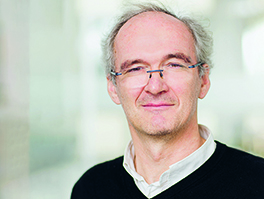
Christian Joppke
has been Professor of Sociology in Bern since 2010, having previously worked in Paris, Vancouver, Florence, Berkeley to mention a few.
Beer decision
But he calls coming to Bern the best decision of his life to date. He probably doesn’t like the daily decision not to drink beer as much, because that doesn’t happen. Instead, he simply forgets about the decisions he would have to regret today.
Contact
Prof. Dr. Christian Joppke, christian.joppke@unibe.ch
Sebastian Walther also points out that “in situations that are economically less stable than today, you will not be able to afford these many options.” Otherwise, he doesn’t have much to do with cultural pessimism: “Societies have always been able to adapt to new technologies given a little time. I would expect the younger generations to find practical ways of dealing with the technical possibilities.”
Fewer options, better quality of life?
Gross, by the way, was already pinning his hopes on these future generations. He assumed that we would have “a different understanding of what is possible, what is not or not yetreal”: “Perhaps an unknown generation will help us to find an appropriate relationship with the given.” It may not be the social media generation; they are too deep in FOMO. But why not the climate youth? Fewer options, less consumption, less openness – and also freedom – instead, more focus and ideally a better quality of life: Gross would have liked what is being preached at the demonstrations and blockades. And for very different reasons than climate protection.
New magazine uniFOKUS
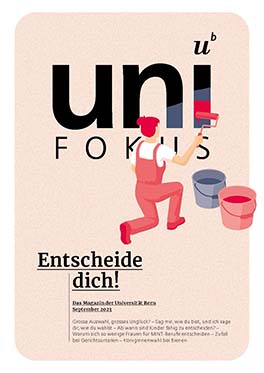
Subscribe free of charge now!
This article first appeared in uniFOKUS, the University of Bern print magazine. Four times a year, uniFOKUS shows what academia and science are capable of. Thematically, each issue focuses on one specialist area from different points of view and thus aims to bring together as much expertise and as many research results from scientists and other academics at the University of Bern as possible.